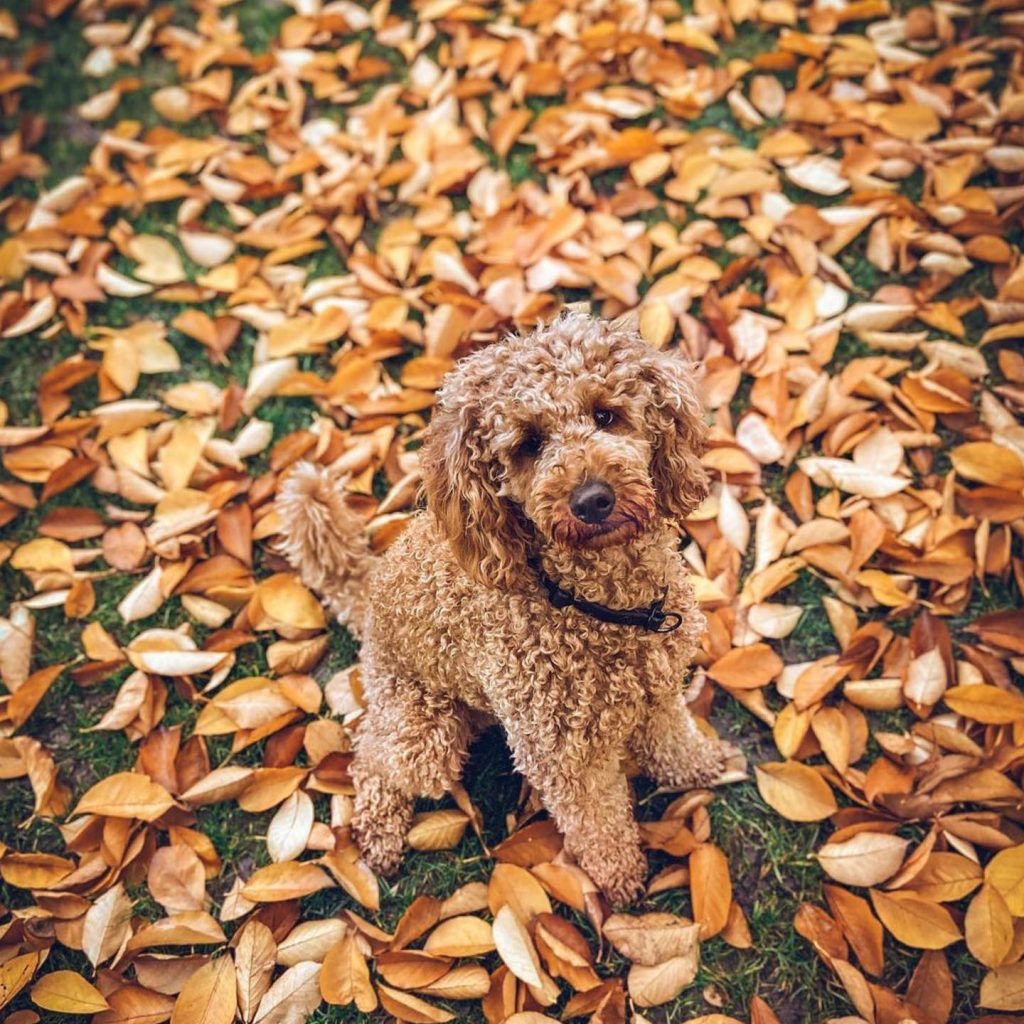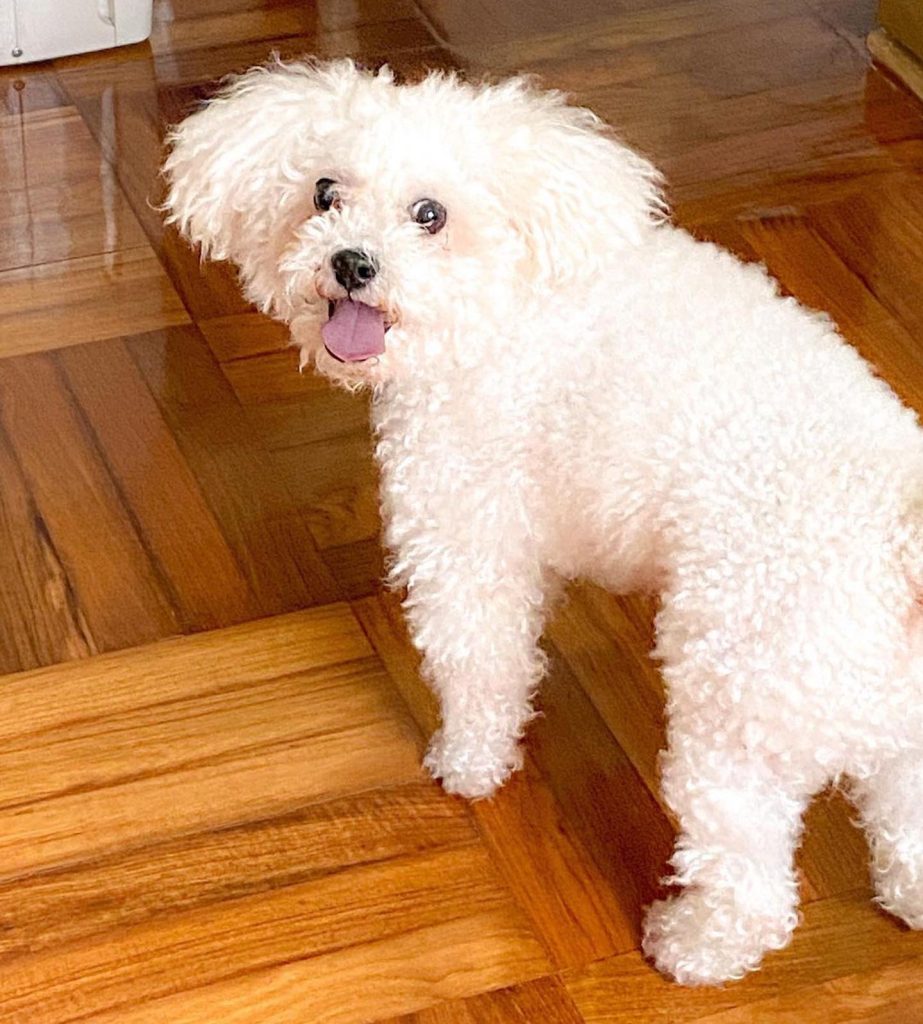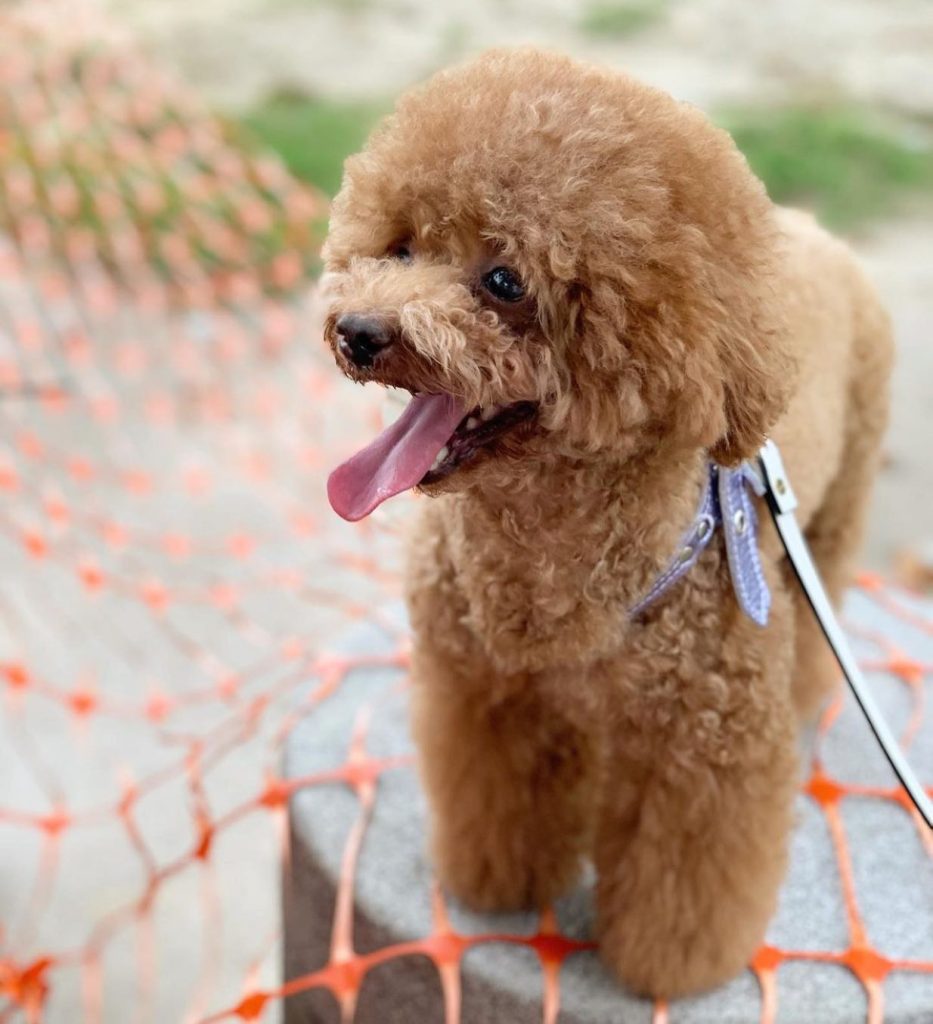Training a poodle, known for its intelligence and elegance, requires understanding its unique characteristics and developmental stages. This comprehensive guide dives into the essentials of poodle training, offering insights into each crucial phase of their growth and the most effective training methods tailored to their distinctive needs.

Understanding Your Poodle’s Unique Traits
Poodles stand out among dog breeds for their remarkable intelligence, agility, and adaptability. These traits make them highly trainable but demand a specialized approach to harness their potential fully. Recognizing and appreciating these unique traits is the first step in practical poodle training.
Intelligence and Learning Capacity
Poodles are ranked among the most intelligent dog breeds. This intelligence translates into a high learning capacity, enabling them to quickly pick up commands and tricks. However, it also means they can quickly develop bad habits if not properly guided. Therefore, consistent, stimulating, and varied training sessions are crucial to keep their minds engaged and prevent boredom.
Emotional Sensitivity
Poodles are susceptible to their owner’s emotions and environmental changes. They respond best to positive reinforcement and can become withdrawn or stubborn if faced with harsh discipline. Understanding their emotional nature is critical to establishing a solid bond and effective communication during training sessions.
Critical Stages of Poodle Development
Understanding the critical developmental stages of poodles is essential for implementing effective training strategies. Each stage presents unique challenges and opportunities for learning and bonding.
Early Weeks: Foundation for Training
The first few weeks of a poodle’s life are critical for their development. During this period, puppies learn basic social skills from their mother and littermates. Exposure to gentle handling by humans in these early weeks lays the groundwork for future training.
The First Six Weeks: Socialization and Basic Commands
Between six to twelve weeks, socialization becomes crucial. Introducing your poodle to various people, pets, and environments helps them become well-adjusted. Basic commands like ‘sit,’ ‘stay,’ and ‘come’ can be introduced during this phase.
Two to Three Months: Behavioral Training
This period is ideal for starting behavioral training. Poodles begin to understand boundaries and the concept of right and wrong. House training, crate training, and basic etiquette like not jumping on people can be taught at this stage.
Four to Six Months: Advanced Skills Development
As your poodle grows, their capacity for more complex commands increases. Training can include walking correctly on a leash, responding to commands from a distance, and beginning basic agility exercises, which cater to their physical and mental stimulation needs.
Half-Year Milestone: Refining Techniques
A poodle should have a good grasp of basic commands and behavior by six months. This period is about refining these skills and ensuring consistency in their responses at home and in public spaces.
The First Year: Mastering Basic Training

The first year is crucial for solidifying the training foundation. Consistent practice, patience, and positive reinforcement during this year set the stage for a well-behaved and well-trained adult poodle.
Each stage requires patience, consistency, and understanding of your poodle’s learning style. Tailoring your approach to their developmental needs ensures a successful training journey.
Crate Training Your Poodle
Crate training is a fundamental aspect of poodle training, offering a haven for your pet and a valuable tool for housebreaking and behavioral management. The key to successful crate training is making the crate a positive and comfortable space.
- Creating a Positive Association
Introduce your poodle to the crate gradually. Place comfortable bedding, toys, and occasionally treats inside to create a welcoming environment. Encourage your poodle to explore and spend time in the crate without forcing them, allowing them to build trust and see it as a safe space.
- Consistency and Patience
Use the crate consistently for specific situations like sleeping, when you’re away or during house training. Poodles, sensitive and intelligent, will quickly understand the routine. It’s essential to avoid using the crate as a punishment, as this can create negative associations.
- Balancing Time
While crate training is beneficial, balancing crate time with plenty of exercise, play, and bonding time is crucial. Poodles are active and social dogs that thrive on interaction and mental stimulation.
When done correctly, crate training can significantly aid in establishing routines, reducing anxiety, and setting boundaries for your poodle.
Insights into Poodle Behavior
Understanding poodle behavior is pivotal to practical training and building a strong bond with your pet. Poodles are known for their intelligence, sensitivity, and energetic nature. They require mental stimulation to prevent boredom, which can lead to destructive behaviors. Engaging them with puzzles, interactive games, and regular training sessions can keep their minds sharp.
Poodles are highly sociable dogs, thriving on human interaction. They can become anxious if left alone for extended periods, so it’s essential to acclimate them to periods of solitude gradually. Training should always be positive and reward-based, as poodles are sensitive to harsh tones and negative reinforcement.
Moreover, poodles are known for their adaptability, making them excellent companions for various lifestyles. However, this adaptability also means they are highly receptive to their environment and owner’s emotions. Maintaining a calm and stable atmosphere is essential to foster a positive learning environment.
In summary, a comprehensive understanding of poodle behavior, encompassing their social needs, emotional sensitivity, and communication styles, is essential for a harmonious relationship with these intelligent and affectionate dogs.
Practical Training Tips for Poodles
Training a poodle, renowned for their intelligence and adaptability, requires a thoughtful approach. Here’s a breakdown of effective training strategies:
Introduction to Poodle Training
Poodles are quick learners, making training a rewarding process. Begin with understanding their personality and learning style. A gentle, patient approach works best, emphasizing positive reinforcement and consistent commands.
Setting Clear Training Goals
Define clear objectives for your training sessions. Whether it’s basic obedience, socialization, or advanced tricks, having specific goals helps track progress and maintain focus during training.
Implementing the Capture and Shape Method
This technique involves recognizing and rewarding natural behaviors and gradually shaping them into desired commands. It’s an organic way of teaching that leverages a poodle’s innate intelligence.
Using the Lure to Obedience Method
Luring involves guiding your poodle into a desired behavior or position using a treat or toy. Once the behavior is achieved, it’s rewarded, making it a powerful tool for teaching new commands.
Teaching with Hand Signals
Poodles respond well to visual cues, making hand signals an effective training tool. Integrating hand signals into verbal command training can enhance communication and responsiveness.
Each method offers a unique way to engage and train your poodle, catering to their intelligence and eagerness to learn.

Addressing Common Training Questions
When training a poodle, owners often encounter a range of questions. Here are some common queries with their answers to guide you through the training process:
- How early can I start training my poodle?
- Poodle puppies can start basic training as early as eight weeks old. This early stage sets the foundation for obedience and social behaviors.
- What are the best methods for poodle training?
- Poodles respond well to positive reinforcement methods. Techniques like clicker training, lure and reward, and the capture and shape method are highly effective. Avoid negative reinforcement, as poodles are sensitive and may react poorly.
- How can I curb my poodle’s barking tendencies?
- Poodles bark for various reasons, including alertness, anxiety, or attention-seeking. Address this by teaching a ‘quiet’ command, providing enough mental and physical exercise, and avoiding reinforcement of the barking behavior.
- Is crate training necessary for poodles?
- Crate training is beneficial for providing a safe space for your poodle and aiding in housebreaking. It should be a positive experience, never used for punishment.
- How do I deal with separation anxiety in my poodle?
- Gradually acclimate your poodle to being alone for short periods. Provide engaging toys and a comfortable environment. Avoid making a big deal of departures and arrivals to reduce anxiety.
- Can poodles participate in dog sports?
- Absolutely. Poodles excel in dog sports like agility, obedience competitions, and dock diving. Their intelligence and agility make them great candidates for these activities.
Advanced Training Techniques
Advanced training for poodles involves addressing specific behavioral challenges, enhancing obedience, and preparing them for dog sports and activities. This detailed approach ensures a well-rounded and well-behaved poodle.
Dealing with Specific Behavioral Challenges
Poodles may exhibit particular behavioral challenges that require specific training techniques:
- Prey Drive Management: Poodles have a natural prey drive that can be managed through consistent training. Teach them commands like ‘leave it’ or ‘stop’ in controlled environments before gradually introducing more distractions.
- Over-Excitement Control: Young poodles often get overly excited. Train them to remain calm by rewarding relaxed behavior and ignoring them during bouts of over-excitement.
- Separation Anxiety Reduction: Gradually acclimate your poodle to being alone. Start with short durations and gradually increase the time. Use positive reinforcements like treats and toys to create a positive association with your absence.
Enhancing Obedience and Responsiveness
As poodles advance in their training, it’s essential to enhance their obedience and responsiveness:
- Advanced Command Training: Teach advanced commands like ‘heel,’ ‘roll over,’ or ‘play dead.’ Use a step-by-step approach with positive reinforcement to ensure success.
- Distraction Training: Train your poodle to respond to commands amidst various distractions. Begin in a quiet area and progressively move to more challenging environments.
- Long-Distance Command Training: Practice commands from a distance to enhance your poodle’s attentiveness. This is especially useful in outdoor settings or situations where direct control is not feasible.
Training for Dog Sports and Activities

Poodles excel in dog sports and activities, which can be both physically and mentally stimulating:
- Agility Training: Agility courses combine physical exercise with mental agility for poodles. Train them to navigate obstacles like jumps, tunnels, and weave poles.
- Obedience Competitions: These competitions test various skills, from basic obedience to complex commands. Training for these events strengthens discipline and strengthens your bond with your poodle.
- Trick Training: Teaching tricks is fun and engaging to stimulate your poodle’s mind. Tricks like fetching specific items, spinning, or bowing are entertaining and mentally enriching.
Training Standard Poodles
Training standard poodles, while similar in many ways to training their smaller counterparts, requires some unique considerations due to their size and energy levels. Standard poodles are intelligent, agile, and often more physically active, so adapting training techniques and focusing on physical and mental stimulation is essential.
Adapting Techniques for Larger Breeds
Standard poodles, due to their larger size, can present different challenges and opportunities in training:
- Physicality in Training: Standard poodles have a more significant physical presence, which requires incorporating training methods that account for their size. It’s essential to establish control and leadership early on. Training in manners such as not jumping on people or pulling on the leash becomes even more crucial, given their size and strength.
- Spatial Awareness: Larger breeds must be more aware of their size and space. Teach your standard poodle to navigate through spaces respectfully, avoiding rough play or movements that could inadvertently cause accidents or injuries.
- Voice and Command Training: A more profound, firmer voice command can be more effective due to its size. However, it’s essential to balance firmness with positivity, as standard poodles are sensitive to tone.
- Strength-Based Activities: Incorporate activities that use their strength advantageously, like fetching larger objects, participating in a tug-of-war with proper rules, or engaging in water-based activities that are excellent for their build.
Focusing on Physical and Mental Stimulation
Standard poodles require a balanced approach to physical and mental stimulation to keep them well-rounded and happy:
- Advanced Physical Exercise: Standard poodles benefit from extended exercise sessions due to their high energy levels. Activities like long walks, hikes, swimming, and agility training cater to their physical needs and help positively expand their energy.
- Mental Challenges and Training: Engage their intelligent minds with complex training sessions, puzzle toys, and games that require problem-solving skills. Teaching advanced tricks, practicing obedience skills in different environments, and participating in dog sports can provide the mental stimulation they crave.
- Socialization and Environmental Exposure: Expose them to various environments, sounds, people, and other animals. This broadens their experiences and improves their adaptability. Socialization is critical in ensuring they are well-behaved and comfortable in different settings.
- Consistency and Routine: Establishing a consistent routine helps manage their energy and intelligence. Regular training sessions and a predictable daily schedule provide a sense of security and structure.
- Health and Nutrition Focus: Pay attention to their diet and health needs. Proper nutrition plays a significant role in their physical and mental well-being. Regular check-ups with the vet and keeping up with vaccinations and preventive care are essential.
Training a standard poodle is a rewarding experience. They are capable of impressive feats of agility and intelligence, making them standout participants in advanced obedience and agility courses. Their training should blend discipline, love, and understanding, catering to their unique size and temperament. With the right approach, standard poodles can be trained to be well-behaved companions and stars in various dog sports and activities.
Continual Learning and Training Resources

The journey of training a poodle is ongoing, evolving with the latest canine training and behavior developments. Continual learning is vital for the dog and the owner to ensure the training remains practical and relevant. This section explores ways to keep up with training developments and valuable resources for furthering training knowledge.
Keeping Up with Training Developments
Staying informed about the latest techniques and theories in dog training is crucial for ongoing success:
- Professional Development: Attending workshops, seminars, and conferences focused on dog training and behavior can provide insights into new methods and research. These events offer opportunities to learn from experts in the field and stay ahead of evolving practices.
- Networking with Other Dog Owners and Trainers: Joining dog clubs, especially poodle-specific clubs, and online forums can be invaluable. Sharing experiences and tips with other poodle owners provides practical, breed-specific advice. Professional trainers can also offer guidance tailored to your poodle’s needs.
- Engaging with Veterinary Professionals: Regular consultations with your vet can inform you about the health aspects that impact training, like dietary needs, exercise routines, and behavioral health.
- Utilizing Technology: Many apps and online platforms are dedicated to dog training. These tools can offer convenient ways to track progress, set reminders for training sessions, and access a wealth of information at your fingertips.
Exploring Additional Training Materials and Resources
Expanding your knowledge through various materials and resources can enhance your training approach:
- Books and DVDs: There are many books and DVDs on dog training, ranging from basic obedience to advanced techniques. Look for materials that offer step-by-step guides, practical advice, and insights into canine psychology.
- Online Courses and Webinars: Many reputable dog trainers and institutions offer online courses and webinars. These can range from free introductory courses to comprehensive training programs, providing flexibility to learn at your own pace.
- Interactive Training Tools and Games: Interactive games and training tools can make learning fun and effective for you and your poodle. These tools often combine physical activity with mental challenges, aligning with the poodle’s need for stimulation.
- Customized Training Plans: Consider creating or seeking a customized training plan for your poodle. Tailoring the training to your dog’s specific personality, strengths, and weaknesses can yield better results.
- Community Events and Dog Shows: Participating in community dog events, shows, and competitions can extensively test your training in real-world scenarios. It also allows observing and learning from other well-trained dogs and their handlers.
Continual learning and access to diverse training resources play a crucial role in your poodle’s ongoing development and well-being. As you explore new methods and materials, evaluate their effectiveness based on your dog’s response and adapt as necessary. The field of dog training is constantly advancing, offering fresh perspectives and strategies to enhance the bond and understanding between you and your poodle.
